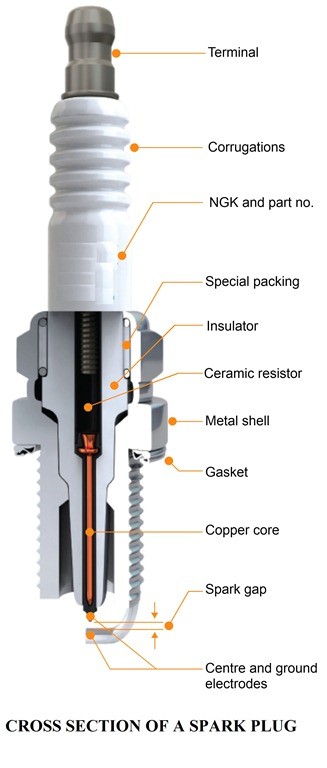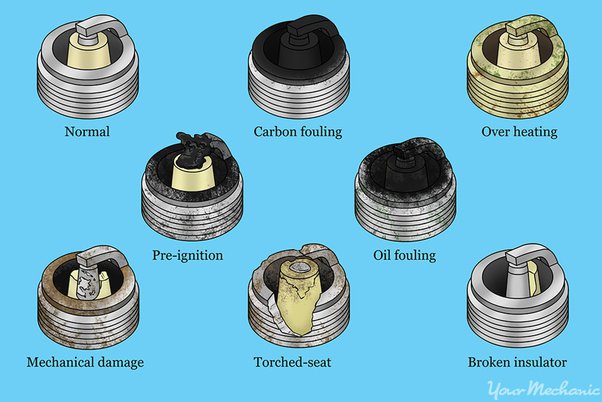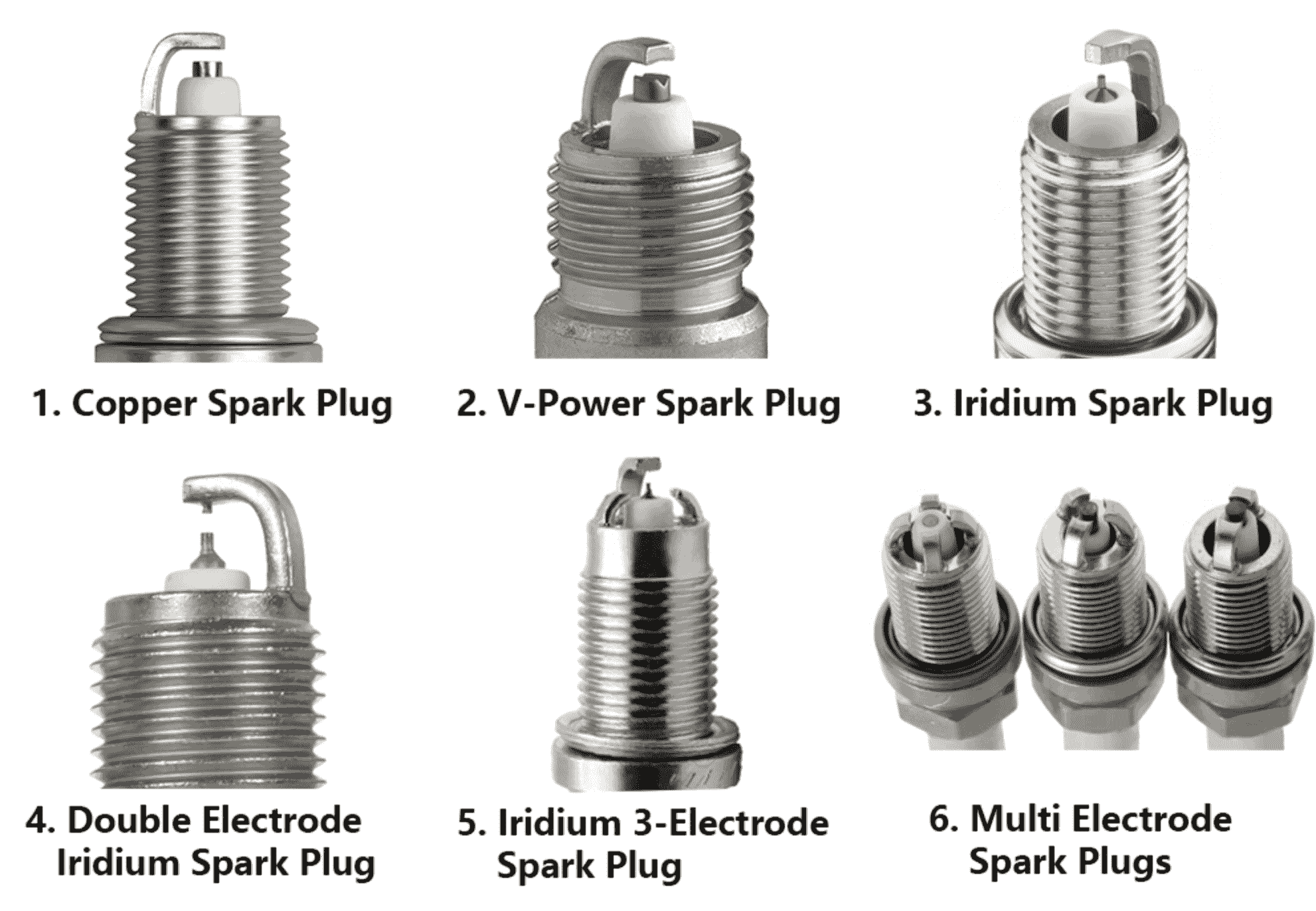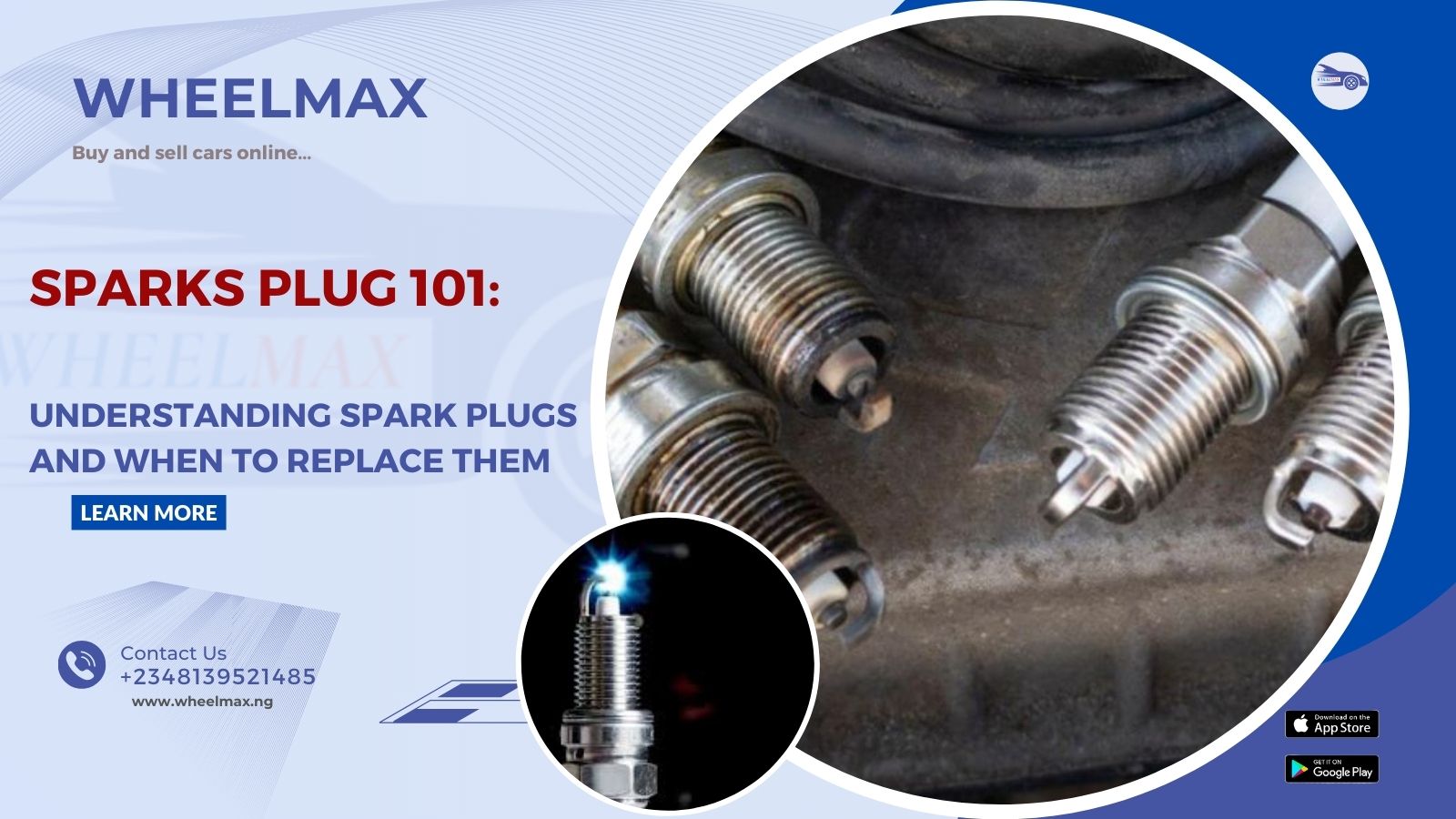Spark Plugs 101: Understanding Spark Plugs, how they work and When to Replace Them
They may be small, but spark plugs are vital in keeping your car running smoothly. These unsung heroes are responsible for the crucial spark that ignites the air-fuel mixture within your engine's cylinders, creating the combustion that propels your vehicle. In this blog post, we'll delve into the world of spark plugs, exploring their anatomy, function, and how to know when it's time for a replacement.
Understanding Spark Plugs: A Mini Anatomy Lesson

Imagine a tiny superhero with a porcelain heat shield and a lightning bolt for a superpower. That's essentially what a spark plug is! Here's a breakdown of its key parts:
- Metal Shell: This threaded shell screws into the cylinder head and provides a ground for the electrical current.
- Insulator: Made of a high-temperature ceramic material, the insulator prevents the high voltage electricity from escaping the center electrode.
- Center Electrode: This thin electrode receives the high voltage current from the ignition coil and delivers the spark to ignite the fuel mixture.
- Ground Electrode: This electrode positioned near the center electrode creates the spark gap where the spark jumps.
The Spark of Life: How Spark Plugs Work
The magic happens when your car starts. The ignition system generates a high voltage current that travels through the spark plug wire and reaches the center electrode. As the voltage builds, it jumps the gap between the center and ground electrodes, creating a tiny spark. This spark ignites the air-fuel mixture in the combustion chamber, driving the piston down and propelling your car forward.
When Do Spark Plugs Need Replacing?
Spark plugs aren't invincible. Over time, the constant exposure to extreme temperatures and combustion can cause them to wear down. Here are some signs that your spark plugs might need replacing:
- Misfiring: This manifests as a jerky, shuddering engine, especially during acceleration. It occurs because a worn spark plug may not deliver a strong enough spark to ignite the fuel mixture consistently.
- Rough Idling: If your engine vibrates excessively at idle, it could be due to worn spark plugs causing incomplete combustion.
- Decreased Fuel Efficiency: Faulty spark plugs can lead to inefficient fuel burning, resulting in lower gas mileage.
- Difficulty Starting: A weak spark from worn plugs can make it harder for your engine to turn over and start.
Knowing Your Replacement Schedule
While the signs above can indicate trouble, a good rule of thumb is to consult your car's owner's manual for the recommended spark plug replacement interval. This can vary depending on the vehicle's make, model, and even the type of spark plug used. Generally, spark plugs need replacing anywhere between 30,000 to 100,000 miles. However, severe driving conditions like stop-and-go traffic or frequent towing can shorten their lifespan.
How to Check Spark Plugs for Replacement

While a mechanic can definitively diagnose spark plug issues, there are some preliminary checks you can do at home to get a sense of what might be the culprit:
- Visual Inspection: Once you've accessed the spark plugs (consult your car's manual for location and removal process), look for signs of wear and damage. Excessive wear on the electrode tips, cracks on the insulator, or deposits of carbon, oil, or coolant on the plug can all indicate problems.
- Spark Test: This rudimentary check requires removing the spark plug from the cylinder head and attaching the spark plug wire back onto it. Wear insulated gloves for safety. With the help of someone else, have them crank the engine for a split second while you hold the spark plug base securely away from the engine block. Observe the spark: a healthy spark plug should produce a strong, blue spark across the gap. A weak, yellow, or erratic spark suggests a failing plug.
Important Note: It's crucial to follow safety precautions when performing a spark plug test. Never attempt this test alone, and make sure the spark plug is securely attached to the wire to avoid electrical shock.
Spark Plug Replacement: DIY or Professional?
Replacing spark plugs can be a DIY project for mechanically inclined individuals with the proper tools and knowledge. However, if you're unsure about tackling the job yourself, it's always best to consult a qualified mechanic. They can ensure the correct spark plugs are used for your vehicle and install them properly.
Picking the Right Spark Plug: A Matter of Material
Not all spark plugs are created equal. The type of material used for the center electrode plays a significant role in performance, lifespan, and cost. Here's a breakdown of the most common types:
- Copper Spark Plugs: These are the most traditional and affordable options. Copper offers excellent conductivity for delivering a strong spark, but it wears down faster than other types. They are typically recommended for older vehicles or those driven under normal conditions.
- Platinum Spark Plugs: These use a small platinum tip on the center electrode. Platinum offers superior durability and a longer lifespan compared to copper. They provide consistent performance over a longer period but come at a higher cost.
- Iridium Spark Plugs: Iridium boasts the hardest and most durable material for spark plug electrodes. These plugs offer the longest lifespan and the most focused spark for optimal performance. Iridium spark plugs are the most expensive option but can be ideal for high-performance vehicles or those driven in extreme conditions.
Choosing the right spark plug type depends on several factors, including:

- Your vehicle's make and model: Consult your owner's manual for the manufacturer's recommendations.
- Driving conditions: If you frequently experience stop-and-go traffic or extreme heat, a more durable option like platinum or iridium might be beneficial.
- Budget: Copper plugs are the most affordable, while iridium offers the longest lifespan but comes at a premium.
Spark Plugs: Keeping Your Engine Running Smoothly
By understanding the role of spark plugs, recognizing the signs of wear, and following a regular replacement schedule, you can ensure your engine fires on all cylinders (literally!). Remember, these tiny but mighty components play a crucial role in your car's performance, fuel efficiency, and overall health. So, the next time you hear your engine purr, take a moment to appreciate the spark plugs silently working their magic behind the scenes.
